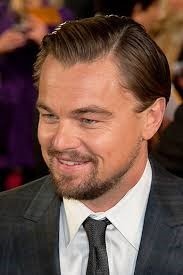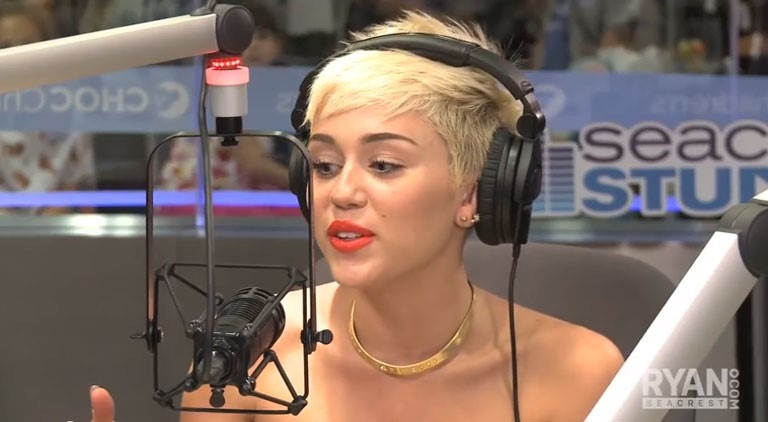Celebrities have stayed largely silent on the issue of climate change. It’s time they took a stronger stance.
We know this from history: when the masses collectively get behind an idea, change is sure to follow. We’ve seen it in the 1963 March on Washington, the abolition of slavery, even the ‘Ice Bucket Challenge’ raising money for ALS.
We may have seen it this week in New York City, with 300,000 marching in the People’s Climate March.
But we also know a cultural shift won’t happen until an influential voice rises above the noise and rallies the people into action: Ronald Reagan amid the late-1970’s malaise for Americans, Jane Fonda in North Vietnam, or Nelson Mandela in South Africa.
Celebrities have the power to shape their time. Sadly in this era, they’re failing us. How many celebrities have shaped the debate over climate change? Who in Hollywood has publicly singled out those neglecting the environment? Miley Cyrus recently appeared on the Ryan Seacrest show, where the focus of the interview was a YouTube video she posted having six million views. What, you ask, was she doing in this video? Discussing global poverty? No, she was twerking in a unicorn onesie.
It’s no surprise that Time Magazine’s list of the 100 most influential people for 2014 was not filled with scientists or politicians but celebrities. In our digital age, Beyoncé and Rihanna share a whopping 150 million Facebook fans, more than the population of Germany and France combined, far exceeding the reach of those on the front line trying to solve the world’s problems.
We give these individuals the power to dictate modern culture. Whether it’s large corporations, governments or individuals celebrities need to take a public stance, holding these people personally accountable for their actions.
Graham Pyke, my colleague at the University of Technology’s Sustainability Central, recently looked at what qualities determine a person’s impact. He identified three: Significance, influence and presentation.
Take British comedian Russell Brand for example. He talks about things that matter – Significance. He’s a renowned stand up comedian and personality in Britain – influence, check, and his cheeky sense of humor – presentation– caps an ideal recipe for influence.
Brand’s path to fame and notoriety was tumultuous: He quickly established a reputation as a brash, sex-crazed rock star. Indulging in cannabis, booze, acid, speed, crack, cocaine, heroin – Brand was in and out of rehab until the age of 27.
Then he sobered up, overcame his demons and did something truly remarkable: He channeled his notoriety into advocacy, fighting against economic disparity; social segregation; and environmental destruction.

He refuses to vote, saying the masses remain disenfranchised from the political system. Yet he is one of Britain’s most influential political commentators, recently appointed editor of The New Statesman, a prominent political magazine. It defies logic that a person refusing to vote can be a political editor, but Brand breaks the mold with a captivating message and celebrity charm.
Brand regularly attracts tens of millions viewers to his advocacy on YouTube.
What are other celebrity advocates doing? Pouring ice over themselves.
In less than two months, the ALS Association has raised $113.5 million with its “Ice Bucket Challenge,” a viral craze sweeping mainstream media, raising money for ALS research. A huge part of its success comes down to countless celebrities dumping buckets of cold water over their heads and sharing it on Facebook.
The ice bucket challenge is a worthy cause. It shows celebrities can make a real difference. But I’d like to see them aim higher.

True, some of our “influencers” are advocating for change on climate policy and other important social issues. Take Leonardo Di Caprio, he has dedicated his twitter account to environmental activism and his recent address at the Climate Change Summit was admirable.
But it’s time celebrities adopt a more drastic approach and here’s how:
- Name and shame: publically name and shame offenders of climate change. Calling for change has fallen under deaf ears for too long. Point the finger at who is behind this and rally the masses to stand against them.
- Boycotting business: Celebrities publicallty refusing to do business with those accused of neglecting the environment. This will hurt business and be sure to deter offenders.
- Calling for ‘Ecocide’: A term I heard used by Polly Higgins, criminalizing the destruction and contempt of the environment, punishable in the same way as genocide.
Desperate times call for desperate measures, there have been positive steps but at this rate it won’t be enough and time is running out. We’re standing behind a padlocked door and Hollywood holds the key.
This full length piece was originally posted on The Daily Climate as an expansion on the thoughts initially presented in Basil’s MAHB-UTS post from August 5, 2014: Are the ‘Influential’ maximizing their influence?
MAHB-UTS Blogs are a joint venture between the University of Technology Sydney and the Millennium Alliance for Humanity and the Biosphere. Questions should be directed to joan@mahbonline.org
MAHB Blog: https://mahb.stanford.edu/blog/where-are-the-influencers/
The views and opinions expressed through the MAHB Website are those of the contributing authors and do not necessarily reflect an official position of the MAHB. The MAHB aims to share a range of perspectives and welcomes the discussions that they prompt.
